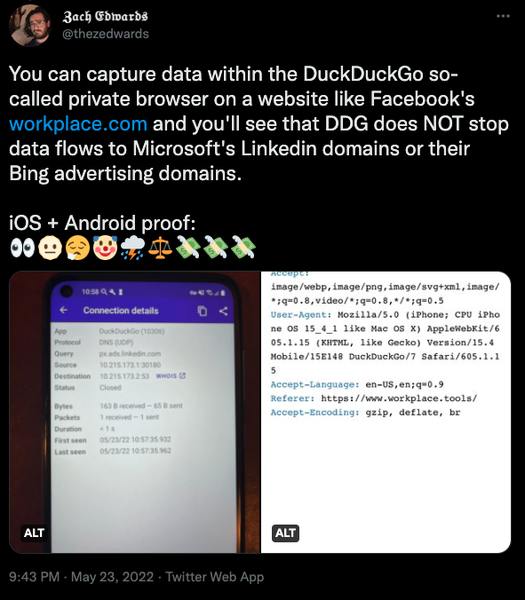Microsoft Trackers Enabled – DuckDuckGo’s Privacy Questioned
When we speak of private browsing, we have to mention DuckDuckGo as it prides itself on features such as third-party cookie and tracker blocking. However, recent audits show something very different end results. Simply put, you’re definitely not Duck Ducking everything and you’re absolutely “Going” with what the private browser claims to provide. Yes, you’re being tracked and you don’t even know it.

DuckDuckGo is definitely the ultimate search engine to maintain privacy. Unfortunately, the “tracker blocking” claims turned out to have some exceptions. This makes you question what the engine is all about.
It’s true that DuckDuckGo does block Google and Facebook trackers. But why allow Microsoft trackers to continue running? Why fail to mention that? We’ll answer that in this comprehensive article.
DuckDuckGo Browser – Microsoft’s Tracking Buddy
DuckDuckGo is one of the most popular browsers in the world. This popularity comes as no shock to everyone as the software was created to protect a user’s privacy while browsing the web.
As of now, more than 80 million users utilize DuckDuckGo for what it has to offer, including HTTPS-always encryption, third-party cookie blocking, and tracker blocking.
This has been the case with the browser for quite some time now and the Apple Store solidifies such capabilities:
“Tracker Radar automatically blocks hidden third-party trackers we can find lurking on websites you visit in DuckDuckGo, which stops the companies behind those trackers from collecting and selling your data.”
However, security researcher Zach Edwards begs to differ as his claims show the Duck has been hiding a huge secret underneath its wing. Here’s what his tweet states:
“You can capture data within the DuckDuckGo so-called private browser on a website like Facebook’s workplace.com and you’ll see that DDG does NOT stop data flows to Microsoft’s Linkedin domains or their Bing advertising domains.”
Apparently, the researcher conducted these tests on Android and iOS, which is clearly shown in the image above. But unfortunately, it doesn’t stop here.
Further tests showed worse results as Microsoft isn’t the only one with enabled tracking. The research also found trackers related to the bing.com and linkedin.com domains.
In response to Edwards’ research, DuckDuckGo CEO and Founder Gabriel Weinberg came out with his own tweet. He did confirm that DuckDuckGo allows Microsoft trackers third-party sites due to an agreement with Redmond.
The funny thing is that Weinberg has been defending the company’s transparency when it came to the agreement with Microsoft. Yeah, that’s true, we all know that. But why fail to disclose that Microsoft trackers are enabled until a security researcher discovered it?
DuckDuckGo Microsoft Trackers – The Irony of It All
The word is in the title: IRONY. You might ask yourself: Why did we choose such a word? Well, DuckDuckGo called Chrome out for their new ‘Topics’ and ‘FLEDGE’ tracking methods.
Not only that, but they bashed the browsing giant by saying that tracking is tracking, no matter what you call it. And now, the phrase goes right back to you DuckDuckGo.
No matter what agreements you have with tech companies, including Microsoft. You’re a private browser that should maintain anonymity, and yes, tracking is tracking.






